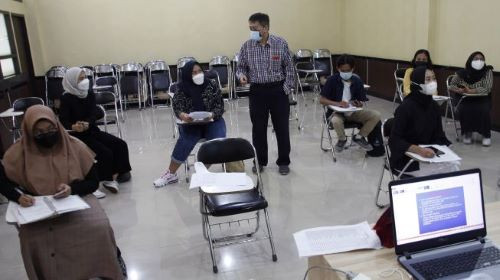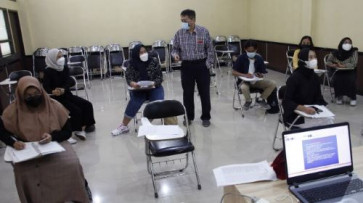Popular Reads
Top Results
Can't find what you're looking for?
View all search resultsPopular Reads
Top Results
Can't find what you're looking for?
View all search resultsThe unseen toll: Mental health challenges facing lecturers
Many lecturers face the challenge of managing their family roles, often with limited support, while fulfilling the extensive demands of their academic careers
Change text size
Gift Premium Articles
to Anyone
D
iscussions about mental health in academia are primarily focused on students, highlighting the rising cases of anxiety, depression and stress among them. In response, higher education institutions have introduced various initiatives such as counseling services, mental health workshops and peer support programs, often emulating best practices from the West. However, the well-being of lecturers has been largely overlooked.
Lecturers are expected to wear multiple hats, acting as educators, researchers, administrators, philanthropists, entrepreneurs and family members. This relentless demand to excel in every role, coupled with modest compensation, often leads to burnout. Each of these roles adds layers of responsibility and pressure, leaving lecturers vulnerable to mental health challenges.
Yet, despite the prevalence of these issues, institutional support remains inadequate, rarely providing the functional support to manage the pressures associated with these roles, leaving lecturers to manage these overwhelming demands largely on their own.
As educators, they must not only teach but inspire students, adapting their methods to cater to diverse learning styles and ensuring that complex concepts are made accessible. This alone requires significant effort and creativity, but it is only the beginning of their responsibilities.
Beyond teaching, lecturers must also act as high-performance researchers. They are often expected to produce innovative research, publish regularly and secure funding. The pressure to maintain consistent output while pushing the boundaries of their academic fields can be overwhelming, comparable with the demands placed on leading figures in any high-performance research environment.
Lecturers are also tasked with fulfilling philanthropic roles. They are expected to engage in community outreach, mentor younger scholars and contribute to the social development of their institution. This responsibility is embedded in many of their contracts, but often goes unrecognized. Despite its critical importance, this role adds to the already extensive list of duties that lecturers must manage.
In addition to their educational and research obligations, lecturers are burdened with significant administrative duties. They are responsible for managing student assessments, ensuring compliance with institutional policies and participating in departmental planning.



















